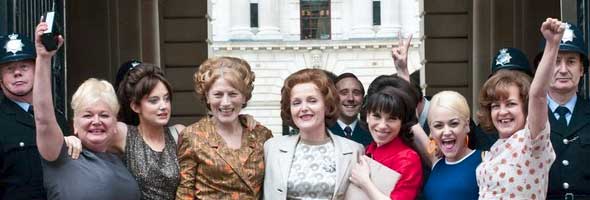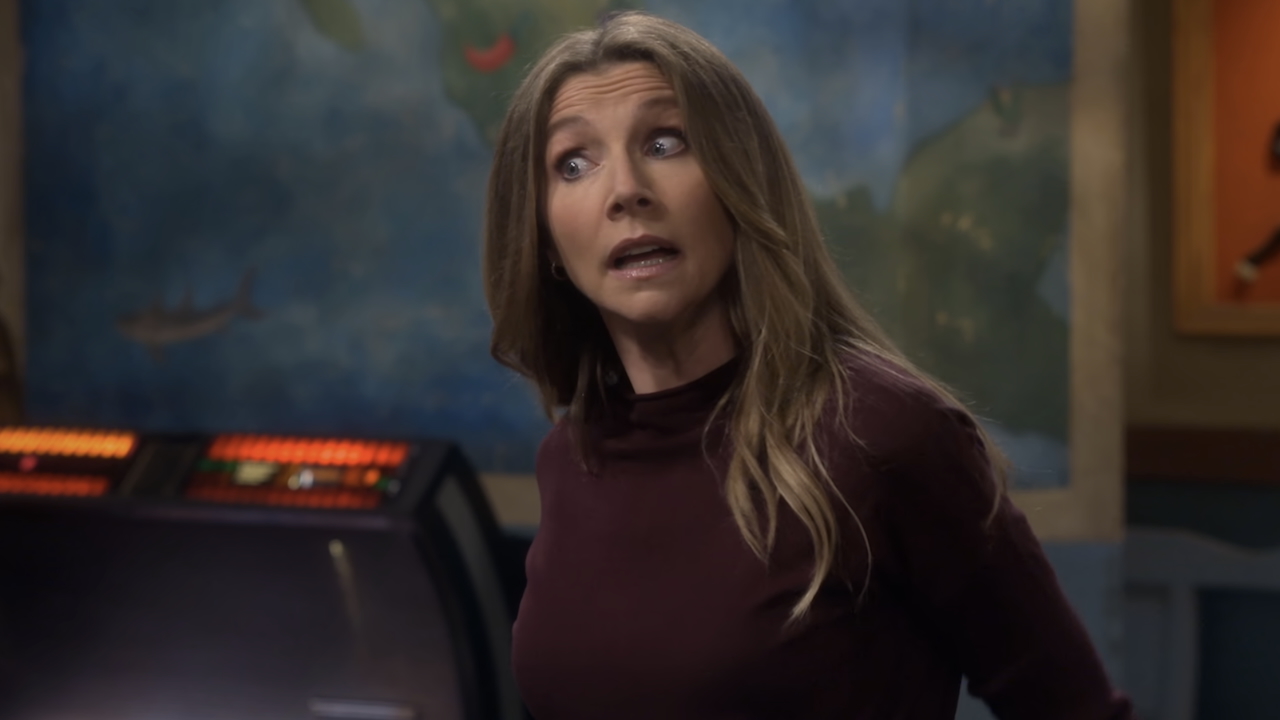It's been 40 years since Britain passed the Equal Pay Act, becoming the first major industrialized country to guarantee equal pay for women in a bit of legislation that the United States, significantly, has been unable to match. It's a landmark in civil rights history that began with the small, uplifting David and Goliath story told in Made in Dagenham, a breezy and funny look at the women who went on strike to demand fair treatment and got it. With Sally Hawkins leading the prodigiously talented cast, and Nigel Cole directing with a light and slightly sentimental touch, Made in Dagenham is disarming and charming, but with a feminist bite that puts it a head or two above mere fluff.
It's an adventure simply to be put inside the Dagenham Ford auto plant in 1968, where everyone bicycles into work from their dorm-like factory apartments and the women sewing the seats strip to their underwear the moment they punch their cards in for the workday. The women good-naturedly terrorize their boss Albert (Bob Hoskins) but enlist him in their fight when he announces their pay is being cut now they're deemed "unskilled" laborers, and to change anything they have to bring it up with the American Ford brass. Almost by accident their leader winds up being Rita (Sally Hawkins), a shy and scrawny mother of two who becomes increasingly indignant when the bosses and even male factory employees don't take the women seriously when they insist their complicated sewing work is skilled.
Conversations with the Ford execs turn into meetings with the labor unions and a strike, eventually leading to media coverage that garners the attention of Secretary of Labor Barbara Castle (Miranda Richardson), accustomed to being a woman in a man's world but also a savvy politician who won't just jump into the picket lines with the women she has clear sympathies with. It takes a while for Barbara and Rita to meet face to face, but Rita finds other surprising allies in the refined and ignored wife of the plant manager (Rosamund Pike, terrific in a small role) and eventually her own husband (Daniel Mays), whose struggle to come to terms with his wife's new leadership is a nifty stand-in for men coping with the feminist movement in general. And though Hawkins leads the film with her nuanced and heartfelt performance, she's supported by the likes of Andrea Riseborough, Geraldine James and Jaime Winstone as Rita's co-workers, all of them endearing and fully realized characters all their own. Over in the government office, Richardson makes Castle vital, funny and even sexy in a way politicians rarely get to be; her story travels less distance than that of the Dagenham women, but Richardson is the perfect tough-as-nails counterpoint to those strikers still finding their voice.
Made in Dagenham follows the familiar path of most underdog stories, and a few ventures into high drama-- including one woman's struggles with her husband's mental illness-- merely diminish the strong story at the center. But William Ivory's screenplay keeps the parallel tracks of the story moving swiftly, as Castle decides how to deal with the striking women and stands up to the male chauvinists in her own office while Rita finds her voice as a leader and points out, over and over again, the tough road walked by working women. When the two threads finally meet, RIta and her compatriots in a confab at Castle's office, even that momentous occasion is touched with humor; just before the group steps before the media to announce they've reached a deal, Barbara and Rita chat about their clothing bought on discount. Touches like that may belie the historical record, but they speak to the humanist heart of Made in Dagenham, a film willing to be a little cheesy for the sake of its old-fashioned and genuinely uplifting story.
Your Daily Blend of Entertainment News
Staff Writer at CinemaBlend


